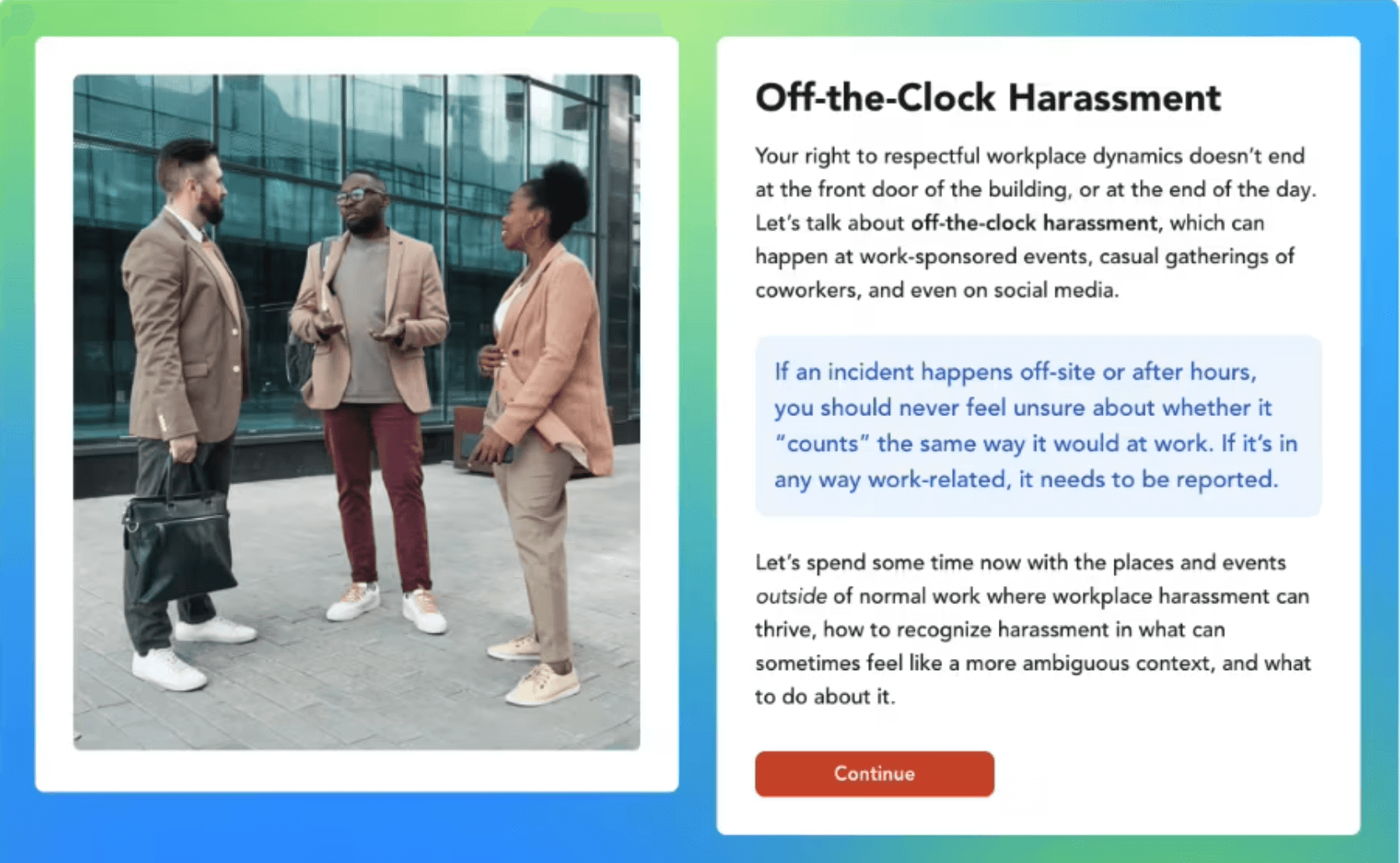Want to learn how to become an HR consultant? There’s never been a better time to start an HR consulting business.
As the world settles into this new remote way of life, one thing is clear: People love the freedom and flexibility that comes with working from home. So much so that many have turned to consulting to allow them even greater flexibility, i.e. working from any country in the world, on their own schedule, for as long (or as little) as they like.
And the HR/People sphere is no exception.
More and more, HR professionals are looking into options beyond the regular salaried roles: Whether because they’re looking for greater work-life balance, an opportunity to better leverage their strengths, or just a way to make some extra cash (and a backup plan) during a not-so-booming economy, an increasing number of HR professionals are exploring HR consulting as an option.
If you’re one of those HR professionals, you’re in luck.
Below, we’ll walk you through how to start an HR consulting business with three tactical tips for dipping your toes — or doing a full cannonball — into the world of HR consulting.
Big thanks to Shelby Wolpa (who shared her go-tos on how to know if you even want to be a consultant) and long-time Ethena advisor Jess Yuen (who’s also struck out on her own) for helping us pull these together.
3 Steps to Become an HR Consultant
1. Build your network: Talk to HR consultants, make smart first connections, and find a mentor
The cheat code to any career jump is talking to people who’ve made that same leap. But let’s be real, making new connections can be both daunting and difficult — especially if you’re trying to connect with someone who’s already got an inbox full of other people trying to connect. So if you want to ask someone like Shelby for career advice, you’ll need to engage with HR leaders in a way that gets their attention.
How to make a smart introduction via email or LinkedIn:
- Do your homework. It’s not uncommon for successful HR leaders to have written blog content, newsletters, or regular webinars. Start with their professional website and social media to get a sense of who they are, and leverage that research in your initial outreach. Thoughtful comments on someone’s work are always appreciated.
- Ask for introductions from shared connections. LinkedIn can be your best friend here since it clues you in to possible mutual connections with new contacts. If you’re lucky enough to know somebody who knows somebody, ask them to introduce you. Warm is usually better than cold.
- Write a good cold email. If you don’t have someone to make an intro on your behalf, nail the cold email by making it direct and short, polite and personable. There are plenty of templates to search for if you need a place to start, like the ones in this article from The Muse.
- If you can, find a mentor. If you have a close colleague who’s been consulting for several years successfully, ask them to mentor you through the first year or so as you establish yourself. If you don’t, consider asking the greater LinkedIn community for tips and best practices.
- New to networking? All it takes is practice, but some great ways to jumpstart your network are through networking workshops and courses (LinkedIn Learning has a 30-minute Professional Networking course) or online HR groups like Linked:HR and SHRM.
2. Build your portfolio of thought leadership
I’ve been on a journey from never posting on LinkedIn to now having a decent following and fairly consistent engagement with my posts. As someone who’s not particularly prone to social media, I’ll be honest: It’s been weird and a little nerve-wracking, but it’s also become a really valuable skill-set that’s allowed me to build up my thought leadership portfolio.
If you want to do the same, ask yourself what experience and ideas you bring to the table. What problems are you excited to solve? (And yes, believe it or not, you have interesting things to say!)
Once you've got a clear answer to those questions, it’s time to build your online portfolio. This will enable potential clients and connections to get a better sense of who you are as a thought leader. Think blog posts, newsletter, webinar panels, LinkedIn posts.
Here are some practical options to take your first stab at thought leadership:
- Build your professional website. Use your role model consultants as a guide. Shelby’s website is a great example of what’s possible, from pricing and services to thought-leadership elements like blog content and downloadable playbooks. Think about how your specific experience can be marketed to the companies you want to work with and build that into your website.
- Try LinkedIn-fluencing. Commit to posting one insightful LinkedIn post per week (or more if you’re social media savvy). What fascinates you about the People space? How can you share your experience here? Notice who engages with your posts, and engage with theirs, or reach out to them. Not sure where to start? I’m role modeling the self promotion you’ll need by saying check out my recent LinkedIn posts to see which ones get engagement and what feels authentic to you.
3. Decide when you’ll be financially ready to make that leap
Starting your own business, especially if you plan on quitting your salaried position, means financial instability. Below are some first steps to make sure you’re financially set:
- Have an emergency fund. Even if you’re lucky enough to have a handful of clients right out of the gate, you’ll need to set aside savings to support your business during gaps in work. Plan for six to nine months of living expenses as a baseline.
- Set your rates and stay consistent. Last year’s SHRM HR Magazine came with three bits of great advice:
- Keep your rates consistent. Clients may talk to one another.
- Work with a pay structure that works for you. What might be most fair is an hourly rate–you never know from that first meeting how long the actual job might take. Not sure how to determine your rate? Most people start by calculating their current hourly rate (a nifty little formula for this is your current salary divided by 2080), and then tack on 15%. As a freelancer, you’ll want to charge more since you’ll have to pay out-of-pocket for health benefits and PTO.
- Don’t forget to account for miscellaneous expenses like travel or housing if you travel for an on-site project. Incorporate these into your consulting fees.
- Consider joining a consulting firm. Running a small business–especially when that business is you–isn’t for everyone, financially or personality-wise. Consulting firms offer an additional layer of job security (and benefits) while giving you the opportunity to consult for the industries you’re interested in. No two consulting firms are the same, so make sure you know what types of roles and responsibilities you’re looking for when researching these.
- Register yourself on consulting project platforms. Like the consulting firm above, this option might not be for everyone. If you’re looking for ways to get connected to clients faster outside of your current network and don’t want to commit to a firm, a consulting platform is a great way to split the difference. Some examples of these platforms are Clarity FM, Catalant, PWC’s Talent Exchange, Graphite, and more.
4. Can you consult as a side hustle?
Okay, I snuck in a fourth tip. There are situations where you can dip your toe in the water by freelancing at first. Perhaps you help out a company that wants to develop its first employee onboarding experience, so it’s a 2-3 month gig.
This is a really nice way to try out consulting, but among other considerations, be aware that your company likely has code of conduct style requirements that lay out whether or not and how you can “moonlight” or freelance. (And if your company doesn’t have a Code of Conduct, boy do we have a deal for you!)
Revamp Your Career by Starting an HR Consulting Business
While making the transition into consulting can be time-intensive, it can also be an incredibly rewarding experience for People leaders looking to switch things up as they chase after the next phase of their career.
Follow these 3 tips to become an HR consultant, and you’ll be in a prime position to start your HR consulting business.
Ethena is a compliance training platform with intuitive and powerful admin tools, built to make training easy, engaging, and effective. Interested in exploring Ethena’s training solution? Talk to a member of our team.








